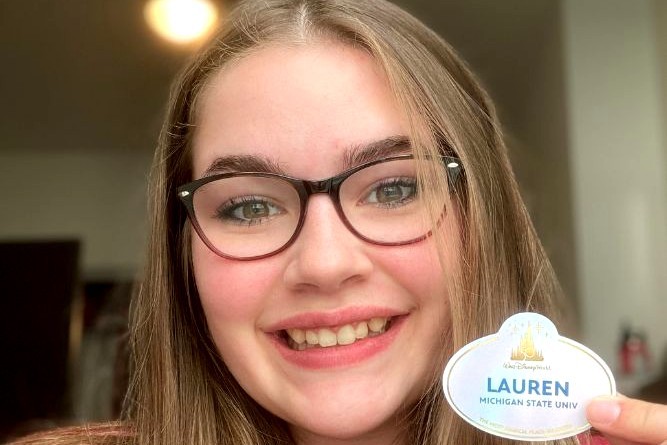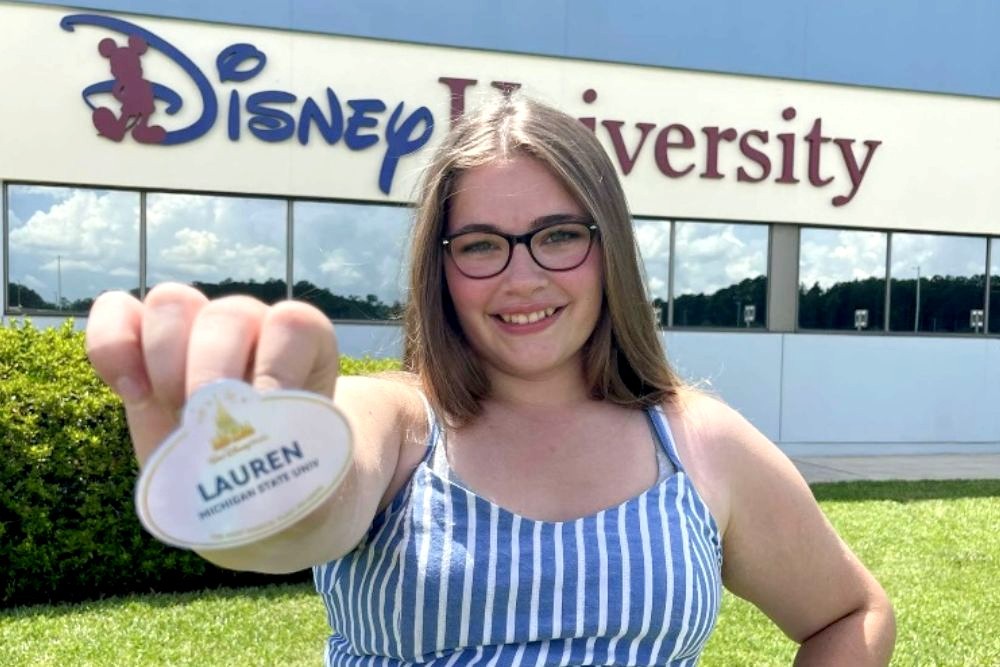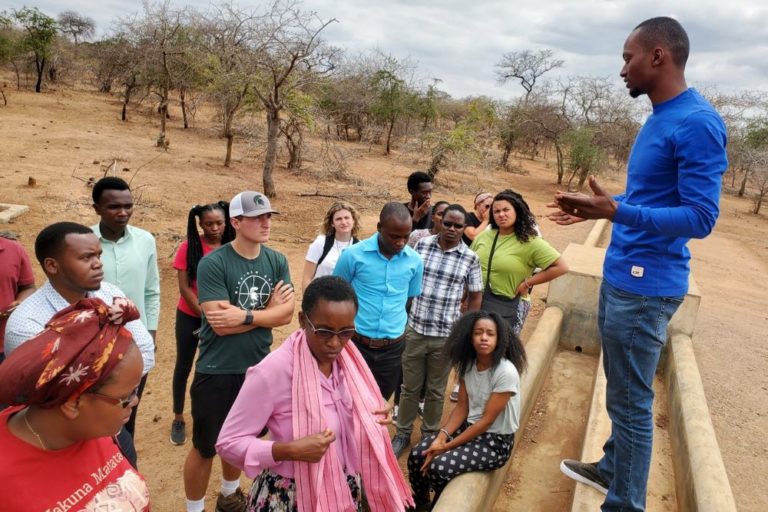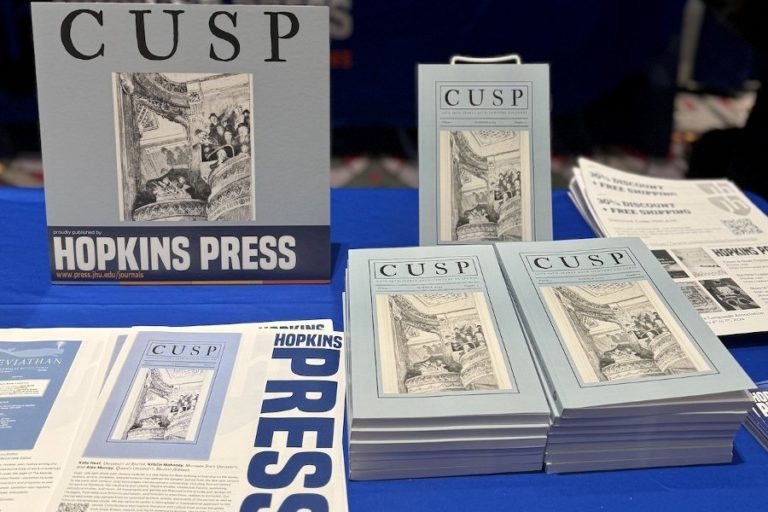As a recipient of a 2023 CREATE! Micro-Grant, Lauren Rake, a senior Film Studies major with a minor in Theatre, spent this past semester writing a screenplay that deals with the sense of isolation and loss of human connection that comes with an increased online presence.
This year, 13 CREATE! Micro-Grants were awarded with each winning proposal receiving $500 to fund the proposed projects. Offered by MSU’s College of Arts & Letters and facilitated by the Dean’s Arts Advisory Council with support from the MSU Federal Credit Union and departments across the university, the CREATE! Micro-Grant program encourages Michigan State University students to critically engage, through art, with the past, present, or future while offering them the opportunity to explore current events and issues through mediums such as art, dance, film, poetry, and song.

For Rake, this meant writing a dramatic/satirical comedy screenplay called A Tuned Masterpiece. Through this work, she argues that technology, while an integral part of everyday life, comes with an opportunity cost that one pays for having an obsession with social media, online communication/perception, and the desire to go viral.
“The loss of human connection [through the use of technology and social media] has left many people feeling isolated and has made it easier to trade in that connection for attention and spectacle,” Rake said. “It has become an addiction, and people will go to strenuous lengths to become part of the spectacle, even if it disadvantages others.”
“The loss of human connection [through the use of technology and social media] has left many people feeling isolated and has made it easier to trade in that connection for attention and spectacle.”
A Tuned Masterpiece is about a worker named Braun who finds himself part of a spectacle of performances in his town’s theater, leading him to discover that the show is not what it seems. As he dives deeper, he becomes unsure whether he will ever escape or not. Braun is quickly subjected to the need to entertain and be entertained, ultimately falling victim to the attention that people desperately crave when they create a presence for a large audience.
Sources of Inspiration
In writing her screenplay, Rake was inspired by Bo Burnham’s 2021 musical satirical comedy special Inside, which he recorded at his Los Angeles home during the COVID-19 pandemic. This special depicts Burnham’s deteriorating mental health as he analyzes his relationship to the internet as a content creator, criticizing the performative activism he felt the need to adopt as someone with an increasing online audience using comedy and dark humor.
Another source of inspiration for Rake was an episode from Black Mirror, a British TV series inspired by The Twilight Zone that traverses various genres, often placing characters in a series of near-future dystopias to explore how technology and online media have advanced or created many contemporary social issues.
The season three episode of Black Mirror, called Nosedive, which is set in a world where people’s online ratings of each other’s social interactions directly impact their socioeconomic status, deals with the increasing importance that society places on our online appearance to build social capital.

“That episode really does show how social media has impacted our everyday lives,” Rake said. “While it is more dystopian, we can see its relevance in today’s world.”
Through her screenplay, Rake argues that many of the ideas regarding online social regulation presented in the Nosedive episode are true and she hopes her script provides a new perspective for aspiring Gen-Z creatives, encouraging them to speak their minds in order to break out of unwritten societal expectations or patterns.
Rake was drawn to use comedy as a tool for social commentary because, she says, it sets a tone that eases the audience into the storyline, making them more receptive to the central criticism present in the work. However, her screenplay is not strictly comedic. It also includes elements of drama to add to the seriousness that Rakes says is necessary when criticizing the ever-increasing role technology plays in our lives.
“Releasing your art to the public eye can be a very vulnerable moment. When I am being creative, I keep in mind that this is my art and my perspective. It’s not right or wrong — it’s subjective to my point of view.”
As a member of Gen-Z, the most technological generation so far, Rake says she has experienced firsthand the negative impact of maintaining an online presence that is positively received.
“Different perspectives in everything, including art, is important, and for a very long time, I allowed others to define me,” Rake said. “Letting that go can be hard, and you get concerned about how others will think of your art. Releasing your art to the public eye can be a very vulnerable moment. When I am being creative, I keep in mind that this is my art and my perspective. It’s not right or wrong — it’s subjective to my point of view.”
A large part of Rake’s creative process, she says, occurs when she is alone and away from technology, which she finds distracting and stifling. To ground herself and tune into her creative side, she tries to stay off her phone and social media as much as possible, replacing these activities with low-tech options like reading, listening to music, or knitting.
“My biggest advice for my generation of artists and creatives is to get off technology,” Rake said. “For me, it is a huge distraction that halts my process.”


